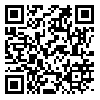Volume 7, Issue 40 (3-2020)
erj 2020, __(40): 118-136 |
Back to browse issues page
Download citation:
BibTeX | RIS | EndNote | Medlars | ProCite | Reference Manager | RefWorks
Send citation to:



BibTeX | RIS | EndNote | Medlars | ProCite | Reference Manager | RefWorks
Send citation to:
Moradi A, Keshavarz S, Kordlo M. The educational bottlenecks of virtual social networks on children and adolescents and its preventive strategies with emphasizing the educational teachings of the Qur'an and hadiths. erj 2020; 7 (40) :118-136
URL: http://erj.khu.ac.ir/article-1-830-en.html
URL: http://erj.khu.ac.ir/article-1-830-en.html
1- Ministry of Education , amirmoradi8@yahoo.com
2- Kharazmi University
3- Ministry of Education
2- Kharazmi University
3- Ministry of Education
Abstract: (8528 Views)
Today, with the expansion of the Internet and social media, new educational environments have emerged and expanded the names of social networks which has attracted children and adolescents due to their unique features and capabilities. Because technology is not neutral, children and adolescents with numerous educational opportunities and dilemmas by social networks are faced. Therefore, the purpose of this study is to study the educational bottlenecks of social networks on children and adolescents and providing preventive strategies with emphasizing the educational teachings of the Qur'an and hadiths. The method of this study is qualitative and descriptive-analytic (qualitative content analysis) and inference of practical analogy. Findings of the research showed; educational bottlenecks of social networks on the education of children and adolescents, including breaking the norm (such as breaking the law, violence and aggression, sexual freedom and the promotion of abusive content, the promotion and normalization of the illegitimate relations of girls and boys, promotion of luxury and extreme consumerism, violating some ethical and religious virtues, routine and stereotypes), addiction to social networks and away from god and violation of privacy. Also, culturalize, Promoting Conscious parental supervision, protect privacy, fill leisure time and emphasize the importance of self-esteem and breeding its skills is a suggested solutions which leads to the study of the Qur'an and traditions to reduce the negative effects of our social networks.
Keywords: educational bottlenecks, virtual Social networks, Education, Children, Adolescents, Quran, hadith.
Type of Study: Research Paper |
Subject:
Educational Philosophy
Received: 2020/06/16 | Revised: 2020/10/22 | Accepted: 2020/10/9 | ePublished: 2020/10/9
Received: 2020/06/16 | Revised: 2020/10/22 | Accepted: 2020/10/9 | ePublished: 2020/10/9
Send email to the article author
| Rights and permissions | |
 |
This work is licensed under a Creative Commons Attribution-NonCommercial 4.0 International License. |






